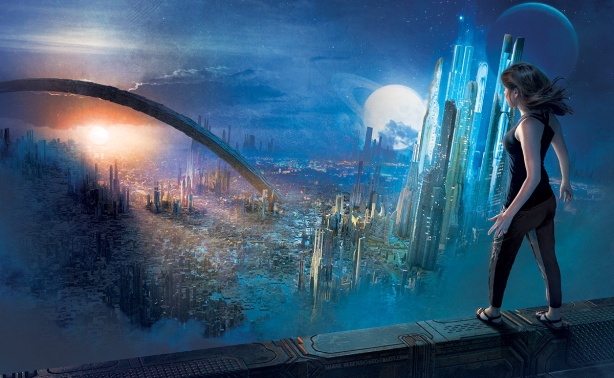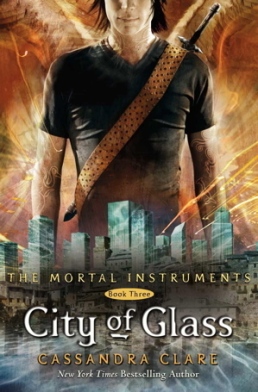It took me a few weeks to come to terms with this novel, but I finally did and this is what I decided: despite the hype about Station Eleven, or perhaps because of the hype, the book turned out to be a huge disappointment for me.
About :
It starts off brilliantly with an actor’s onstage death that, while seeming both tragic and horrible to the cast and fans, also feels right—this is an elderly actor, surrounded by his favorite people, doing his favorite thing amidst the glorious fanfare of playing King Lear, dying a completely natural death. Sad, but, in a sense, also normal and even enviable. The way a person wants to die. (This scene made me want to go pick up King Lear, immediately, which is a bonus. I love being inspired to read classics by reading modern books.)
Then, as the acting cast meets afterwards in a bar to take in the death of their lead, we get this line:
Of all of them there at the bar that night, the bartender was the one who survived the longest. He died three weeks later on a road out of the city.”
Whoa, what!? This compelling line introduces the coming apocalypse—which, we soon learn, will be in the form of an epidemic that causes collapse of human civilization. The actor’s death is indeed a happy mercy in comparison. The perfect prose sets up the drama of this revelation perfectly.
Unfortunately, the prose is the only thing I enjoyed about the rest of the book. My interest died fairly soon after that amazing intro, after which we find ourselves following a cast of narrators connected in distant and basically meaningless ways. The revelations about those character connections are supposed to somehow give the novel structure, but the strategy doesn’t really work. It just reads like a bunch of character sketches set against a relatively static “post-apocalyptic” background. We see the fall of humanity through the eyes of these characters, which is sort of interesting, but…
Thoughts :
For me, two problems killed the character-driven premise of “examining the individual and collective human response to apocalypse.”
First of all, the cast is boring, completely average and largely unchanging. These are normal people who make huge mistakes, but never redeem themselves. The two characters who do change only do so in flashbacks: the actor, imo the least sympathetic character, and the vaguely-Protestant-sounding cult leader. Although Mandel attempts to give the story structure by following the arcs of the actor and the cult leader, both are snoozeworthy. I’ve read so much more interesting and illuminating portrayals of religious nutsos (see Hazel Motes in Wiseblood or St. John Rivers in Jane Eyre or even Kelsier in Mistborn!), so this kind of religious stereotype completely bores me.
Second, Mandel wrote Station Eleven almost entirely from the viewpoint of non-religious peoples of European descent. A little more diversity would have gone a long way toward creating a more compelling cast. The lack of sane religious people in particular seems like an odd disparity in a post-apocalyptic population. So, in regards to religious people, either: (1) ALL of them are nuts; (2) ALL the sane ones died already; or (3) ALL the sane ones were raptured!
‘What about the post-apocalyptic setting?’ you may be wondering. Well…it’s largely static, like the characters, unfortunately. [Highlight to view SPOILER: After the initial fall, we just see everything collapse again and again through the eyes of the cast, and that’s where it stays. Nothing else happens, no clues about the future. Maybe that’s what Mandel is saying: the future remains static forever. I guess you could interpret it that way, but it’s boring and relatively hopeless and in conjunction with everything else I didn’t like about this story? MEH. ]
To end on a high point: several members of the cast belong to a troupe of Shakespearean actors traveling through the wasteland, and Mandel uses them to share the redeeming power of story. I enjoyed that theme, even if it is apparently the exclusive source of meaning and hope characters find in the world of this novel (which is just silly. I love my books, but I don’t base my identity and hope in them, and I certainly wouldn’t do so in the case of an apocalypse. That, in addition to the apparent Theophobia??, made it difficult for me to find myself anywhere in this novel). Still, imaginary bonus points for the lit love.
Overall :
Dull, dull, dull. I’ve read literary fiction that accomplishes all of this with far greater success, so I really don’t understand why people loved this one. There’s just such better stuff out there. For a much more compelling character-driven and literary post-apocalyptic novel, I would recommend Arslan by M. J. Engh. Happily, I just reviewed it two days ago and it’s fresh enough that I’ll guarantee a much more thoughtful reading experience than Station Eleven can provide. Still not much plot, but the characters are way more interesting PLUS they’re unreliable narrators, which, I mean, bonus points, right?
So I gave Station Eleven 1 star for the prose, 1 star for the terrific intro and a half a star for a half-way decent cast. But I rounded down because I was so disappointed.
2.5/5 STARS
Recommended To:
If you super-love post-apocalyptic fiction, you might still enjoy Station Eleven, especially since it’s so mainstream and popular now. It will likely come up in conversations about literary sci-fi, and sometimes it’s just fun to take part in a popular sci-fi fandom. My library is giving away free copies of it this year for the Big Read, which is really a big deal for a science fiction novel!
Station Eleven is adult post-apocalyptic science fiction authored by Emily St. John Mandel and published September 9th 2014 by Knopf. Hardcover, 336 pages. The opinions I share are completely my own and in no way compensated for by publishers or authors.



 It’s 1882 and an American research group is working to discover the secret to immortality. They’re finally making progress on what they’ve named the “Eterna” compound when an otherworldly force kills the lot of them.
It’s 1882 and an American research group is working to discover the secret to immortality. They’re finally making progress on what they’ve named the “Eterna” compound when an otherworldly force kills the lot of them.







